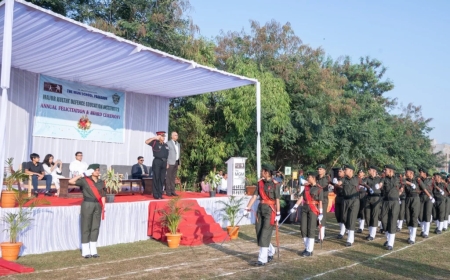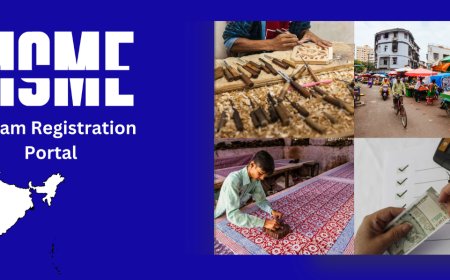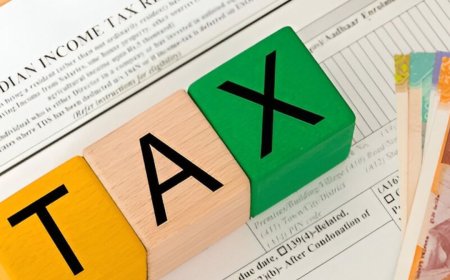Brics Expansion
The BRICS expansion aims to include more emerging economies, strengthening global South cooperation and challenging Western dominance in world affairs through economic partnerships and political collaboration.

The world is witnessing a shift in geopolitical and economic power, and at the heart of this transformation lies the BRICS bloc originally composed of Brazil, Russia, India, China, and South Africa. In a historic move, BRICS underwent its first major expansion in 2024, welcoming Egypt, Ethiopia, Iran, and the United Arab Emirates (UAE) as new members. The following year, in 2025, Indonesia also joined the group, signaling an era of broader representation for the Global South.
This expansion, rooted in the Johannesburg Declaration of 2023, reflects a growing desire among developing nations to assert greater autonomy in global affairs, challenge Western-dominated institutions, and promote alternative economic and governance models. The BRICS expansion marks not just a numerical increase but a significant realignment in global diplomacy and development priorities.
Origins and Evolution of BRICS
The BRICS grouping was initially conceptualized in the early 2000s as a coalition of emerging economies that could act as a counterbalance to the G7 nations. Over time, the bloc evolved from a loose economic alignment to a more coordinated platform promoting multipolarity, development cooperation, and institutional reform.
Originally formed as BRIC (Brazil, Russia, India, China), South Africa joined in 2010, making it BRICS. The latest expansion over a decade later represents the blocs growing ambitions to become a major player in shaping global norms.
The BRICS Expansion: Who Joined and When?
Initial Expansion January 2024
As part of the Johannesburg Summit's commitment to inclusivity and representation of developing nations, BRICS formally invited four countries to join:
-
Egypt
-
Ethiopia
-
Iran
-
United Arab Emirates (UAE)
These nations officially became full members on January 1, 2024.
Further Expansion 2025
In a landmark announcement, Indonesia, the worlds fourth most populous country and a key Southeast Asian economy, joined BRICS as a full member in 2025. Indonesias entry added significant economic and geopolitical weight to the group.
Partner Countries
BRICS also introduced a "partner country" framework, allowing select countries to engage with the bloc on trade, finance, and development cooperation. Current partner countries include:
-
Belarus
-
Bolivia
-
Kazakhstan
-
Cuba
-
Malaysia
-
Nigeria
-
Thailand
-
Uganda
-
Uzbekistan
This broader engagement structure reinforces BRICSs image as the voice of the Global South, attracting countries that share concerns about economic equity and global governance.
Motivations Behind the Expansion
The BRICS expansion is not merely symbolic it is a strategic move to amplify the groups role in the new world order.
1. Representing the Global South
The expansion enhances BRICS's ability to represent the interests of developing nations, many of which feel marginalized in institutions like the IMF, World Bank, and UN Security Council.
2. Diversifying Economic Cooperation
With diverse economies oil-rich UAE, populous Indonesia, and resource-rich Ethiopia the expanded bloc offers greater trade and investment opportunities.
3. Challenging the Dollar-Dominated Order
BRICS nations have long discussed the possibility of conducting trade in local currencies and even creating a new payment system to reduce dependence on the US dollar and SWIFT-based financial systems.
4. Boosting Multilateralism
The expansion is part of a broader push to reshape global governance based on equality, respect for sovereignty, and multipolarity moving away from unipolar or bipolar dominance.
Benefits of BRICS Expansion
The inclusion of new members presents significant benefits for the bloc and its allies:
Economic Strength
-
The expanded BRICS now accounts for nearly 45% of the worlds population and over 35% of global GDP (PPP).
-
Greater diversity in natural resources, energy supplies, and manufacturing capabilities.
Infrastructure and Development
-
Expanded collaboration in infrastructure through platforms like the New Development Bank (NDB).
-
Joint initiatives in areas like digital connectivity, green energy, and food security.
Political Leverage
-
Stronger bargaining power in international negotiations on trade, climate change, and global security.
-
Ability to support UN reforms, including permanent membership for developing nations.
Challenges and Criticisms
While the expansion has many upsides, it is not without complications:
1. Internal Divisions
The expanded bloc includes countries with historical tensions (e.g., Iran-UAE, India-China), which could hinder consensus-building on political issues.
2. Geopolitical Alignments
With diverse political systems and foreign policy goals, aligning the interests of all BRICS members will be increasingly complex.
3. Economic Disparities
Significant differences in economic strength and development levels among members could lead to imbalances in decision-making.
4. Dilution of Vision
Expanding too quickly may lead to bureaucratic inefficiencies and weaken BRICSs ability to deliver tangible outcomes.
Impact on India
For India, the BRICS expansion presents both opportunities and challenges:
Opportunities:
-
Enhanced leadership role in representing the Global South.
-
Access to new markets, particularly in Africa and the Middle East.
-
Greater scope for collaborative projects in infrastructure, energy, and education.
Challenges:
-
India must navigate its complex relationship with China, especially as both countries vie for regional influence.
-
Balancing diplomatic ties with the West while promoting a multipolar world through BRICS.
India must also ensure its own voice is not diluted in a larger bloc and continue to push for reform of global institutions that reflect todays geopolitical realities.
The Future of BRICS
The BRICS expansion signifies a turning point in global geopolitics. With its expanded membership, BRICS has the potential to become a formidable force in global diplomacy, development finance, and strategic policymaking.
Future priorities for the group may include:
-
Launching a BRICS common currency or cross-border payment mechanism.
-
Expanding infrastructure finance through the NDB.
-
Forming a joint climate and energy strategy for the Global South.
-
Strengthening digital cooperation and cybersecurity frameworks.
Conclusion
The BRICS expansion is more than an organizational enlargementit is a statement of intent by emerging economies to play a bigger, more equitable role in shaping the global order. As the world moves toward a multipolar era, BRICS stands as a beacon for cooperation, sovereignty, and self-reliance among the nations of the Global South.
The challenges are real, but so are the opportunities. The success of this expanded BRICS will depend on its ability to build consensus, deliver results, and remain true to its founding vision a world where every nation has a voice and where development is inclusive, fair, and sustainable.



































